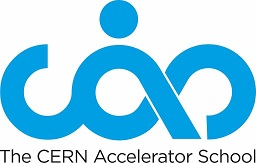Speaker
Description
The Future Circular Collider (FCC) study is developing designs for a new research infrastructure to host the next generation of higher performance particle colliders to extend the research currently being conducted at the LHC, once the High-Luminosity phase (HL-LHC) reaches its conclusion in around 2040. The goal of the FCC is to push the energy and intensity frontiers of particle colliders, with the aim of reaching collision energies of 100 TeV, in the search for new physics. An international collaboration of more than 150 universities, research institutes and industrial partners from all over the world are developing possibilities for circular colliders, new detector facilities, the associated infrastructure, cost estimates, global implementation scenarios, as well as appropriate international governance structures. The FCC examines scenarios for three different types of particle collisions: hadron (proton–proton and heavy ion) collisions, like in the LHC (FCC-hh) electron–positron collisions (FCC-ee), as in the former LEP. Other options include proton–electron collisions or proton-heavy ion collisions.
